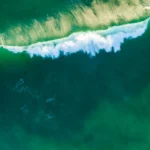As the world becomes a busier place, night skies uncontaminated by light pollution aren’t as common as they once were. The International Dark Sky Association (IDA), a U.S.-based nonprofit organization with the mission of preserving dark skies and cutting down on light pollutions has granted the designation of the Fist Dark Sky Nation to the small Pacific island nation of Niue.
Niue is home to around 1,600 inhabitants and is one of the world’s smallest independent nations. Its people enjoy a long history of being guided by star navigation and lunar cycles, with elders passing down their knowledge from generation to generation. They hope to continue this for some time to come, aided by the formal approval of the nation as an International Dark Sky Place.
Sheer remoteness alone contributes heavily to the island’s dark environment. But pursuant to the IDA’s requirements, the villages commit to using artificial lighting that leaves the night sky unspoiled, unveiling the Milky Way, the Andromeda constellation, and other brilliant starry objects in their full glory. That meant retrofitting or replacing streetlights and lights in private residences and businesses.
Culturally, the Dark Sky designation will help protect part of the island’s heritage. For centuries, its people have used the stars and lunar cycles for navigation on the seas. Niue is also home to a marine reserve and a forest conservation area.
The designation is more than symbolic. Headlines about the tiny country’s accomplishment will likely boost “astro-tourism,” as astronomers and nature lovers from around the world venture into the far reaches of the Pacific for an adventure of a lifetime. When they arrive, they’ll be met by local guides who help visitors find the best views of the pinpricked tarry black skies above. Thanks to its location, you can usually see the main southern dark sky objects like the Southern Cross, the large and small Magellanic clouds, Omega Centauri, as well as mid-latitude constellations like Orion, Taurus, Gemini and Cancer.








